Two studies elucidate key mechanisms limiting the efficiency and stability of organic light-emitting diodes.
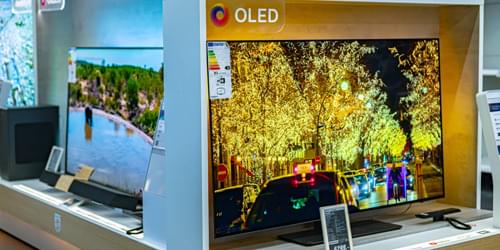

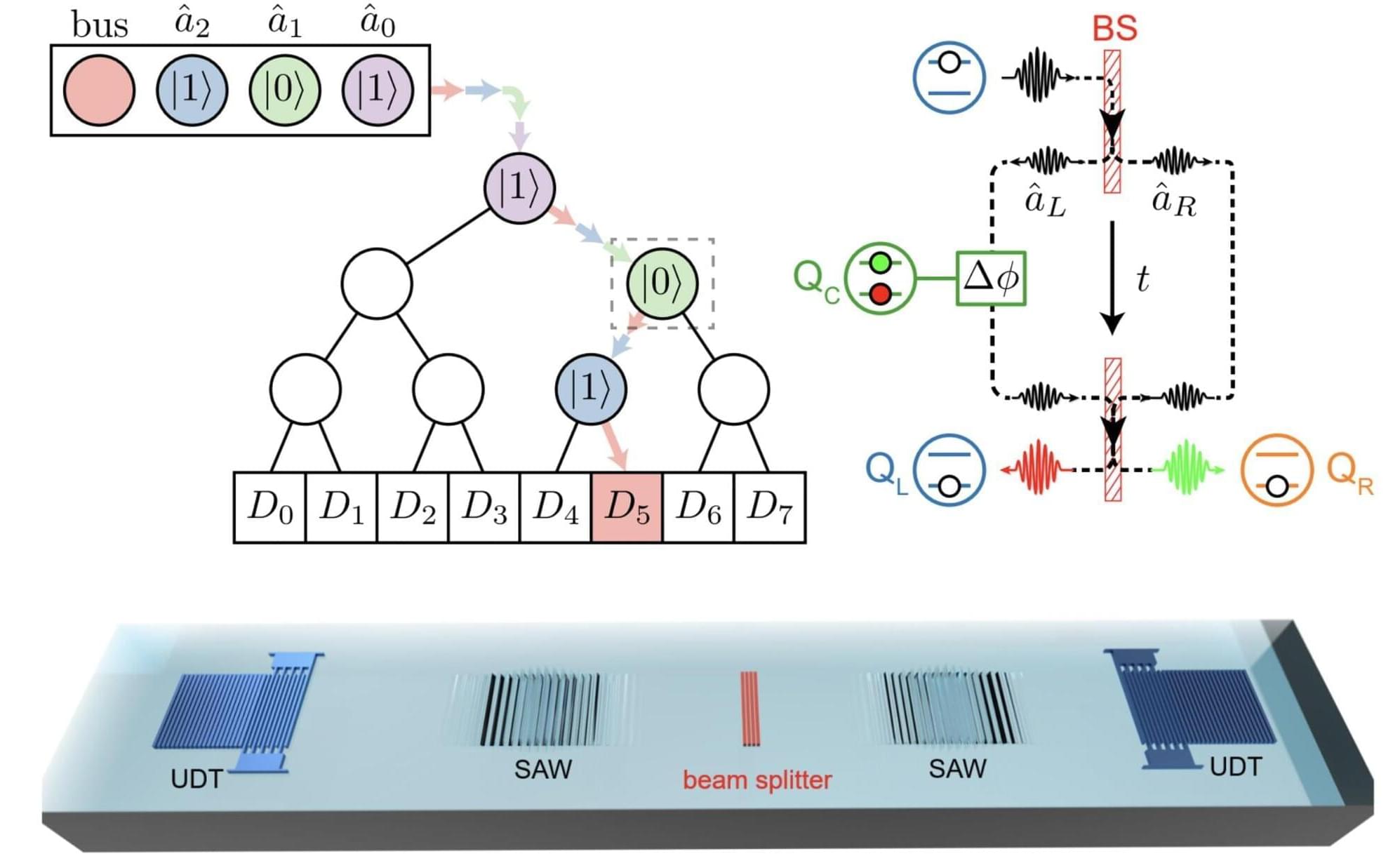
Recent technological advances have opened new exciting possibilities for the development of cutting-edge quantum devices, including quantum random access memory (QRAM) systems. These are memory architectures specifically meant to be integrated inside quantum computers, which can simultaneously retrieve data from multiple ‘locations’ leveraging a quantum effect known as coherent superposition.
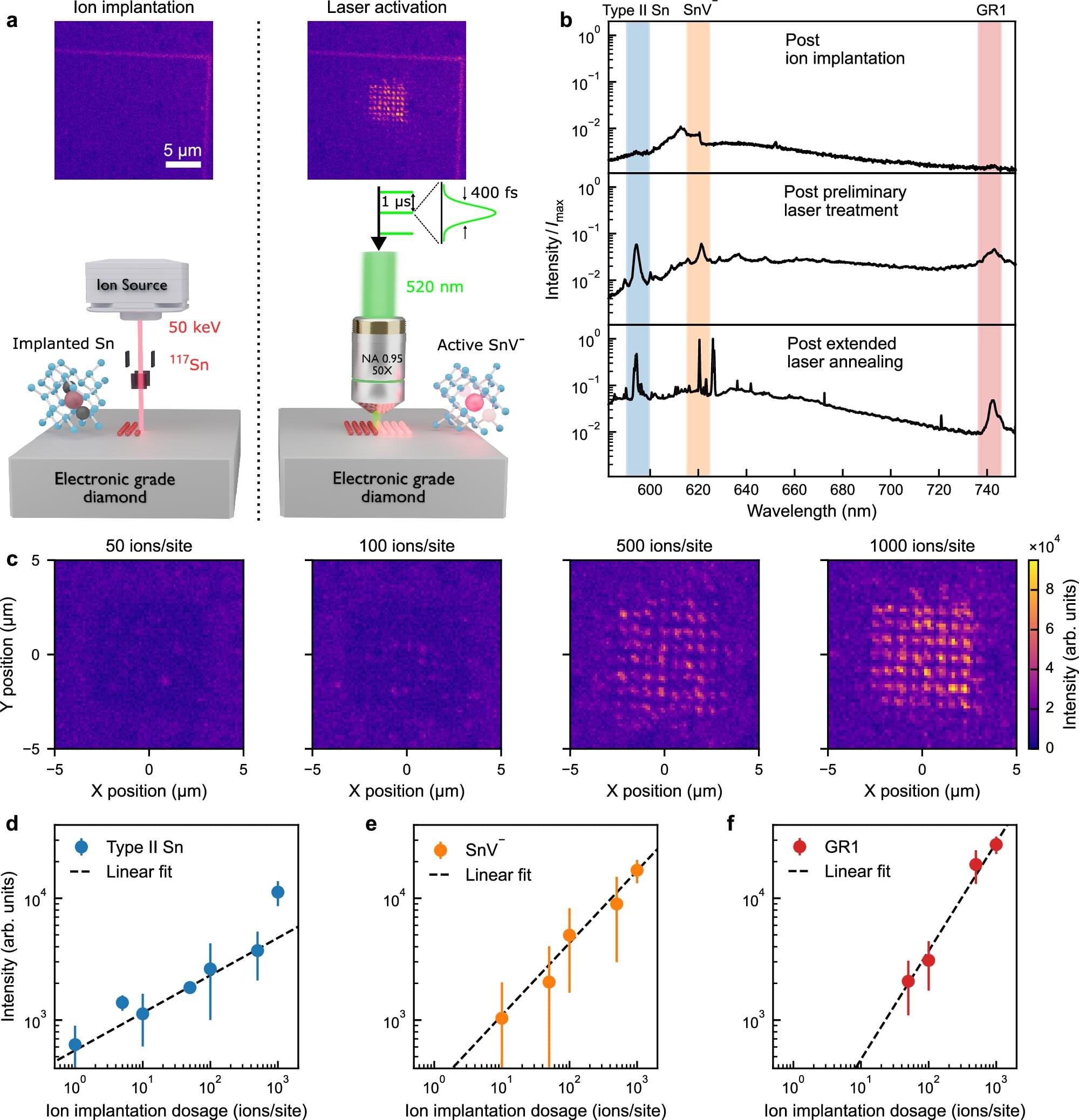
A new study led by researchers at the Universities of Oxford, Cambridge and Manchester has achieved a major advance in quantum materials, developing a method to precisely engineer single quantum defects in diamond—an essential step toward scalable quantum technologies. The results have been published in the journal Nature Communications.
Using a new two-step fabrication method, the researchers demonstrated for the first time that it is possible to create and monitor, “as they switch on,” individual Group-IV quantum defects in diamond—tiny imperfections in the diamond crystal lattice that can store and transmit information using the exotic rules of quantum physics.
By carefully placing single tin atoms into synthetic diamond crystals and then using an ultrafast laser to activate them, the team achieved pinpoint control over where and how these quantum features appear. This level of precision is vital for making practical, large-scale quantum networks capable of ultra-secure communication and distributed quantum computing to tackle currently unsolvable problems.
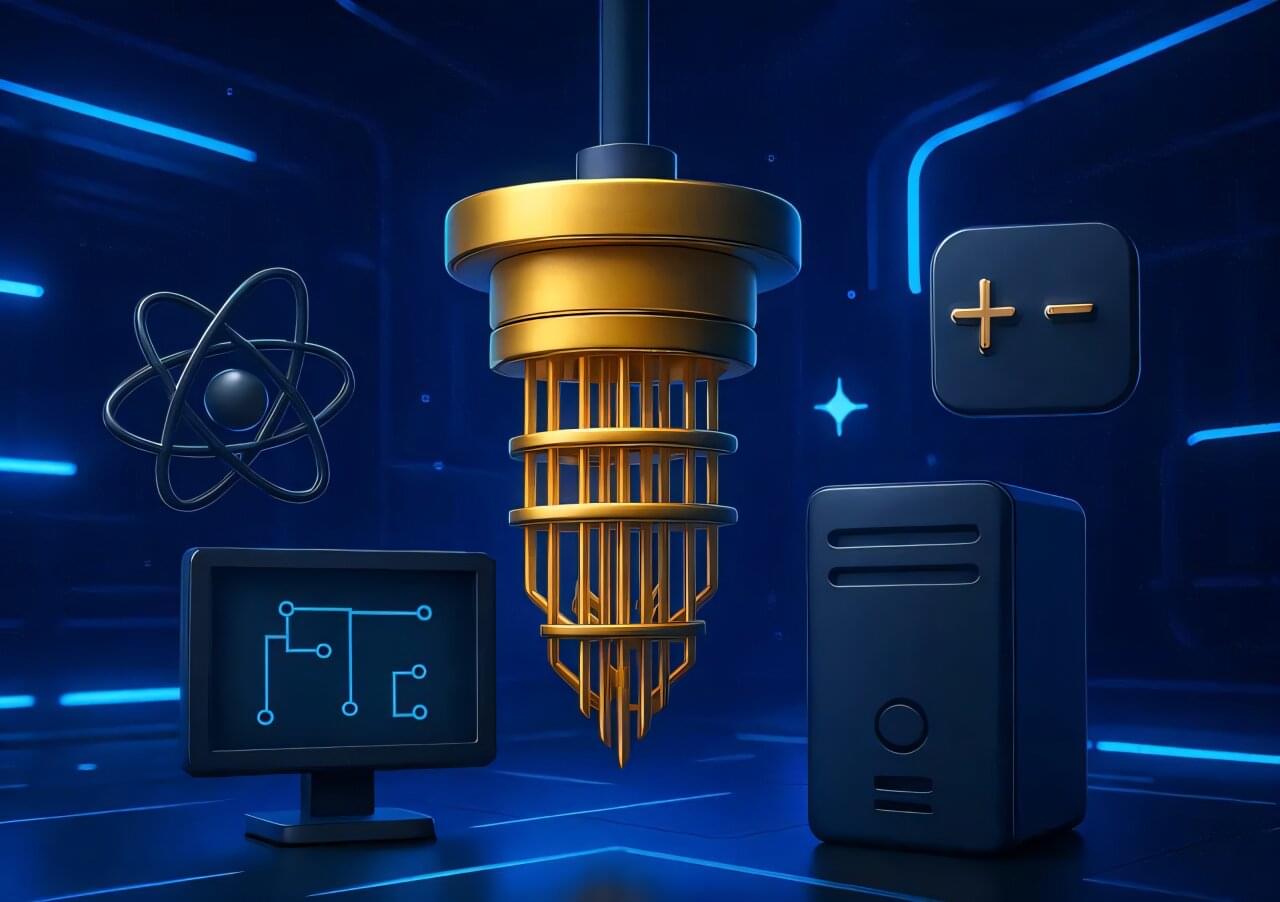
As quantum computing develops, scientists are working to identify tasks for which quantum computers have a clear advantage over classical computers. So far, researchers have only pinpointed a handful of these problems, but in a new paper published in Physical Review Letters, scientists at Los Alamos National Laboratory have added one more problem to this very short list.
“One of the central questions that faces quantum computing is what classes of problems they can most efficiently solve but classical computers cannot,” says Marco Cerezo, the Los Alamos team’s lead scientist. “At the moment, this is the Holy Grail of quantum computing, because you can count on two hands such problems. In this paper, we’ve just added another.”
Quantum computing harnesses the unique laws of quantum physics, such as superposition, entanglement and interference, which allow for information processing capabilities beyond those of classical devices. When fully realized, quantum computing promises to make advancements in cryptography, simulations of quantum systems and data analysis, among many other fields. But before this can happen, researchers still need to develop the foundational science of quantum computing.
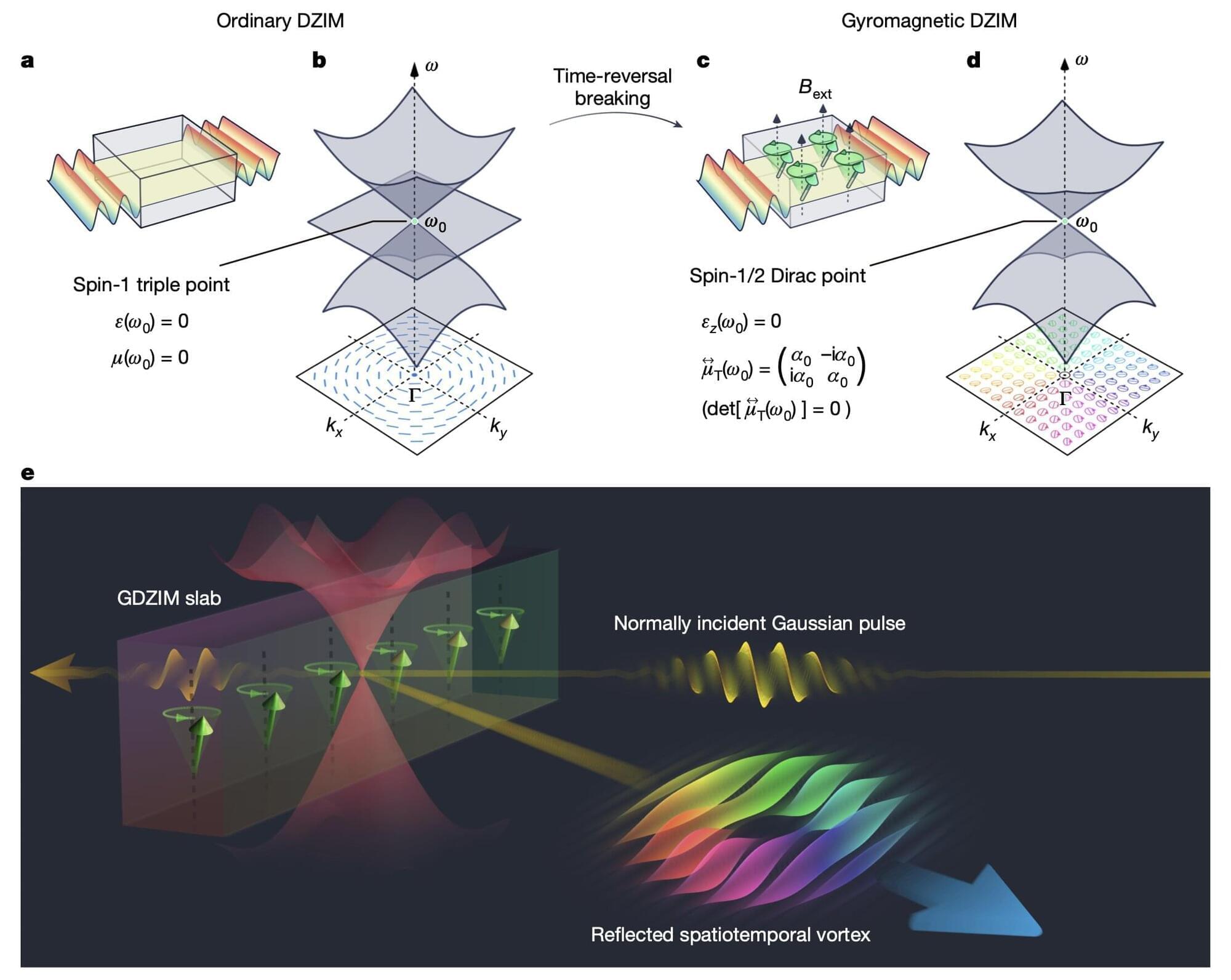
The Hong Kong University of Science and Technology (HKUST)-led research team has adopted gyromagnetic double-zero-index metamaterials (GDZIMs)—a new optical extreme-parameter material—and developed a new method to control light using GDZIMs. This discovery could revolutionize fields like optical communications, biomedical imaging, and nanotechnology, enabling advances in integrated photonic chips, high-fidelity optical communication, and quantum light sources.
The study published in Nature was co-led by Prof. Chan Che-Ting, Interim Director of the HKUST Jockey Club Institute for Advanced Study and Chair Professor in the Department of Physics, and Dr. Zhang Ruoyang, Visiting Scholar in the Department of Physics at HKUST.

For the past six years, Los Alamos National Laboratory has led the world in trying to understand one of the most frustrating barriers that faces variational quantum computing: the barren plateau.
“Imagine a landscape of peaks and valleys,” said Marco Cerezo, the Los Alamos team’s lead scientist. “When optimizing a variational, or parameterized, quantum algorithm, one needs to tune a series of knobs that control the solution quality and move you in the landscape. Here, a peak represents a bad solution and a valley represents a good solution. But when researchers develop algorithms, they sometimes find their model has stalled and can neither climb nor descend. It’s stuck in this space we call a barren plateau.”
For these quantum computing methods, barren plateaus can be mathematical dead ends, preventing their implementation in large-scale realistic problems. Scientists have spent a lot of time and resources developing quantum algorithms only to find that they sometimes inexplicably stall. Understanding when and why barren plateaus arise has been a problem that has taken the community years to solve.
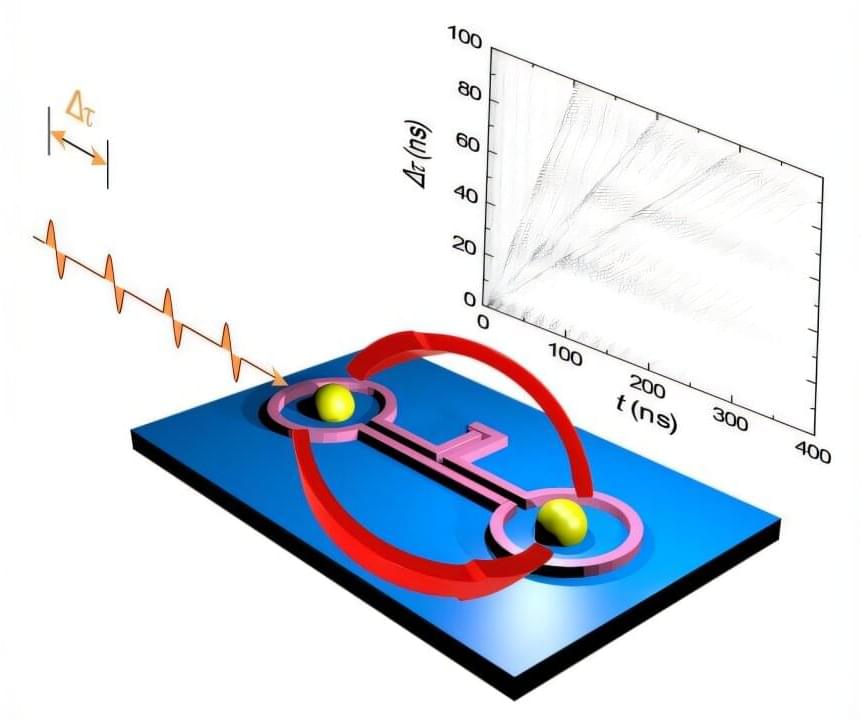
Researchers have determined how to use magnons—collective vibrations of the magnetic spins of atoms—for next-generation information technologies, including quantum technologies with magnetic systems.
From the computer hard drives that store our data to the motors and engines that drive power plants, magnetism is central to many transformative technologies. Magnetic materials are expected to play an even larger role in new technologies on the horizon: the transmission and processing of quantum information and the development of quantum computers.
New research led by scientists at the U.S. Department of Energy’s (DOE) Argonne National Laboratory developed an approach to control the collective magnetic properties of atoms in real time and potentially deploy them for next-generation information technologies. This discovery could aid in developing future quantum computers, which can perform tasks that would be impossible using today’s computers, as well as “on chip” technologies—with magnetic systems embedded on semiconductor chips, or “on chip.”

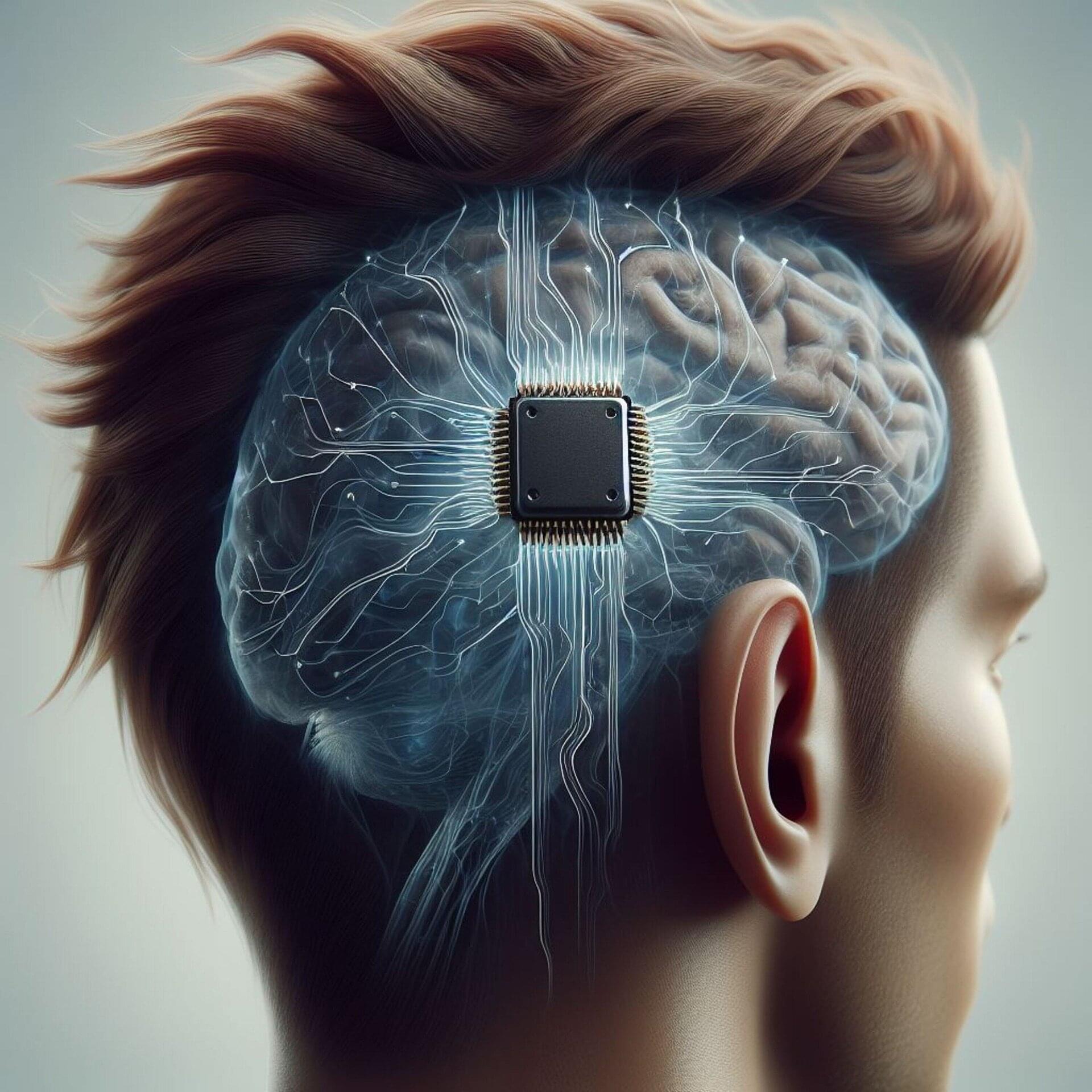
As companies such as Elon Musk’s Neuralink begin human trials of high-risk brain implants, a new proposal calls for a major change in how the U.S. handles injuries caused by the devices.
The article published in Science suggests a “no-fault” compensation program to help patients harmed by devices like brain-computer interfaces (BCIs)—even when no one is legally at fault.
These devices, which are implanted in the brain to treat serious conditions like epilepsy or paralysis, can offer life-changing benefits. But they also come with serious risks such as seizures, strokes or even death. And when something goes wrong, patients often have no way to get help or compensation.
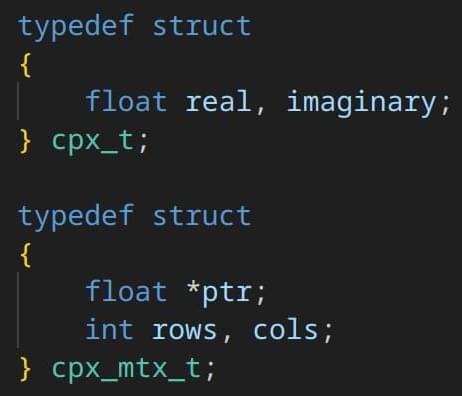
No journal is perfect, and despite Nature being considered a high quality journal, I have recently come across a paper which is, to put it bluntly, is slop. It is a bit of slop easily debunkable by anyone who can do a tiny bit of linear algebra.
The paper is titled “Quantum theory based on real numbers can be experimentally falsified.” The entire paper is misleading because it presents a very specific representation of quantum mechanics based solely on real numbers, shows that it leads to different predictions than traditional quantum theory, and then concludes therefore complex numbers are a necessity for complex theory.
This is obviously false. A complex number is just two real numbers stitched together. Classical computers can’t operate on complex numbers and so they just break them apart into two real floating point numbers and do the equivalent calculations in that form, but then display it as a complex number, and they can reproduce anything you can reproduce using complex numbers. Indeed, my quantum computer simulator I had put together myself uses its own complex matrix library for linear algebra, and each element of the matrix is specified by two real numbers.